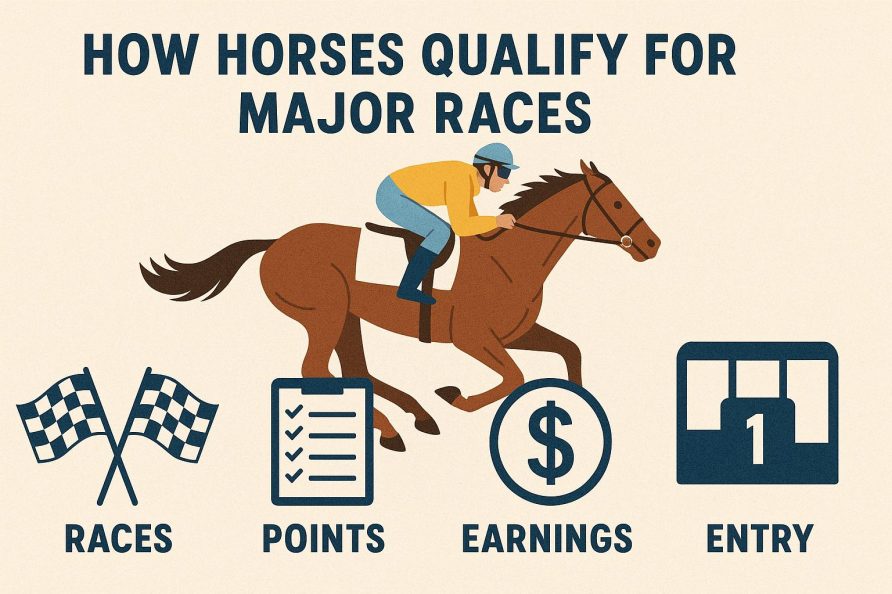The Importance of Handicapping in Horse Racing
Handicapping is a fundamental aspect of horse racing that significantly influences the fairness and competitiveness of the sport. This art involves assigning different weights to horses with the primary objective of leveling the playing field, thereby offering a fairer chance for all participating horses to compete on more equal terms.
Understanding Handicapping
The concept of handicapping in horse racing revolves around ensuring equity by means of assigning weights based on horses’ historical performances. Experienced handicappers keenly carry out this meticulous evaluation process, taking into account several crucial factors. These factors include the horse’s past performances, its age, the distances it prefers, and its current form. By analyzing these factors, handicappers aim to assign weights that can balance out the natural advantages one horse might have over another.
The Process of Handicapping
The handicapping process initiates with an exhaustive assessment of each horse’s previous race performances. Handicappers diligently review race results, timings, and quality of competitions faced by each horse. A critical part of this process is comparing past performances across similar race distances and tracks. This comprehensive analysis enables the handicappers to ascertain each horse’s potential accurately, which helps in assigning a fair weight that reflects the horse’s true ability.
Factors Affecting Handicapping
To ensure that races are competitive and fair, handicappers consider several important factors:
Performance: Horses that consistently exhibit superior performance are typically assigned more weight. This practice helps balance the playing field against horses that might not have been as successful in their previous races.
Distance Preferences: Horses can perform differently depending on the race distance. Therefore, understanding each horse’s distance preference is vital, allowing handicappers to assign weights in a manner that compensates for these variations.
Form: The recent form or performance of the horse is another influential factor in determining assigned weights. A horse in better form is likely to carry additional weight, ensuring that there is fair competition among all participants.
The Role of Handicapping in Betting
Handicapping’s influence extends beyond the fairness of races and into the realm of horse racing betting. A significant number of knowledgeable bettors engage in their handicapping efforts to forecast potential outcomes. This involves an independent evaluation of the horses and often includes analyzing speed figures, track conditions, and jockey performance. Such analysis not only improves the likelihood of successful bets but also adds a strategic dimension to wagering decisions.
The ability to independently assess these factors provides bettors with a strategic advantage, as it allows them to make informed betting decisions. Numerous resources are available online, offering deeper insights into the methodologies behind handicapping. Although a perfect guarantee of betting success does not exist, an understanding of handicapping undoubtedly enhances a bettor’s strategic approach to the sport. A valuable resource for more information and strategies in horse racing handicapping can be found on platforms such as the Daily Racing Form.
Analyzing Handicapping Through Historical Context
Understanding the evolution of handicapping in horse racing requires delving into its historical context. Initially, races were not equitable due to the natural disparities in a horse’s abilities, pedigree, and training quality. Realizing the need for fairness, the sport incorporated handicapping, thus transforming it into a widely accepted practice that ensured every horse had a fair chance of success irrespective of its inherent advantages or disadvantages.
Over the years, the handicapping process has evolved, incorporating advanced statistical analysis and technology. These advancements allow for an even more comprehensive evaluation, thus increasing the accuracy in the weights assigned. Modern-day handicapping integrates data analytics and sophisticated software, providing the handicappers with detailed insights into each aspect affecting a horse’s performance.
Technological Advancements in Handicapping
Technology plays a critical role in modern handicapping, offering detailed analyses and more accurate predictions. With the advent of data analytics, handlers can access expansive databases that house information such as historical performances, track conditions, and biological metrics of the horses.
For bettors and enthusiasts alike, technology makes it easier to access information and analyze horse races independently. It democratizes access to data that was traditionally available only to professionals in the field, thus empowering enthusiasts to engage more closely with the sport.
The Global Influence of Handicapping
The practice of handicapping spans across the globe, with varying methodologies tailored to specific racing cultures. In countries such as the United Kingdom and Australia, handicapping is a well-established tradition, with dedicated authorities overseeing the process to ensure transparency and fairness. Meanwhile, in the United States, the approach may differ slightly in practice but ultimately shares the same goal of leveling the competitive landscape.
Each region’s approach to handicapping not only influences local races but also international events, promoting a universal standard of fairness and competition in the sport. This global integration makes horse racing an inclusive event, drawing enthusiasts from all corners of the world.
Conclusion
In conclusion, the art of handicapping is indispensable in maintaining the balance of competitiveness in horse racing. By ensuring fair competition, it supports the sport’s integrity and fosters a culture of inclusivity for horses of varied abilities. For bettors, an understanding of handicapping is not only an avenue for more fruitful engagements with races but also nurtures a profound appreciation for this intricate sport. Embracing the complexity of handicapping encourages a deeper connection with horse racing, highlighting the nuanced interplay between skill, chance, and strategy in this classic sport.





